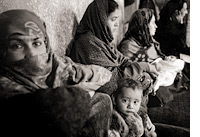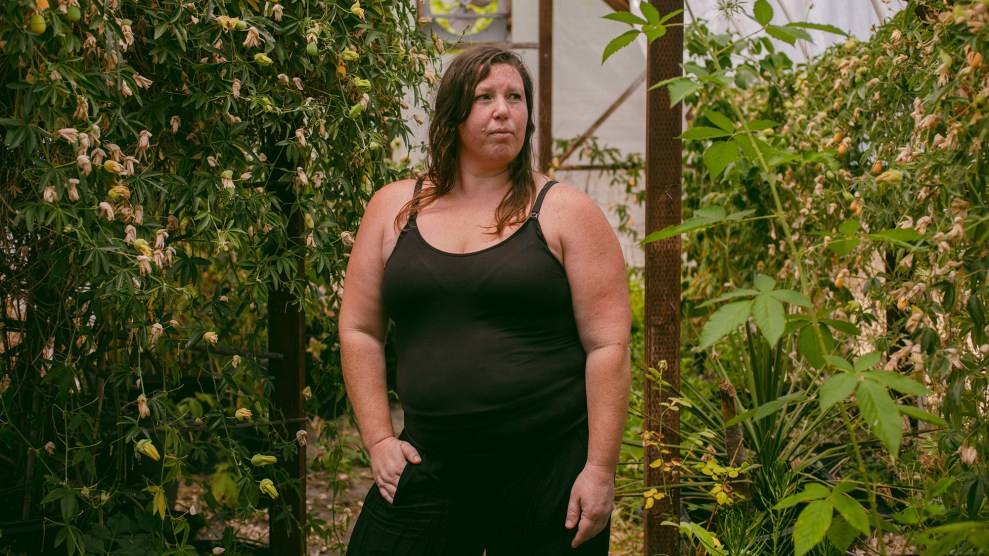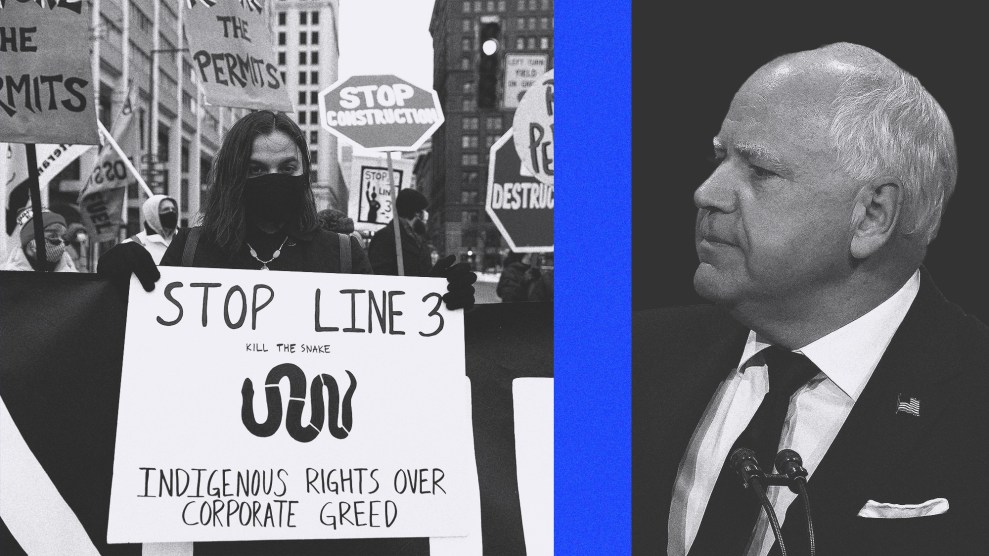
Image: Alyssa Banta
Walking the streets of Herat, Afghanistan’s second-largest city, you would never guess that women here live in fear. Life in the city seems peaceful — families ride, four to a bicycle, down wide, cypress-lined boulevards, and the bazaars are crowded with shoppers buying oranges and almonds and foil-wrapped toffees imported from Iran. “Life in Herat is better than life is for women in most parts of Afghanistan,” says 40-year-old Aysha Jalili, who returned last year from Canada to help rebuild her native country. “Women once again have opportunities here.”
Behind closed doors, however, women tell other stories — stories of a place where daily life is still governed by restrictions that recall the morality policing of the Taliban. A gynecologist, who asks to be called Dr. Afzali for fear of retribution, tells me that she is called to Herat’s hospital at least five times a week to perform “chastity tests” on women who have been arrested for talking to men who are not their husbands, brothers, or fathers. Sometimes women are arrested while talking to a male relative, sometimes for riding in a taxi with a male driver. “The security officers don’t ask any questions, they don’t give the women a chance to explain,” says Dr. Afzali. “They just bring them in.” One teenage girl stood shivering and petrified for 40 minutes, refusing to let herself be examined. A neighbor had reported her to the police when he saw a strange man’s car in the driveway. “She sobbed her way through the exam,” recalls Afzali. “I didn’t want to perform it, but I knew I could lose my job if I refused.” The girl was a virgin; the man, it turned out, had stopped by to pay a debt he owed the girl’s father and had given her the money since her father was not home. “It’s very harmful to a girl’s reputation to be arrested in this way,” says Afzali. “As a woman, it hurts me to see it. It shames all of us.”
Such arrests of women were supposed to come to an end after the Taliban were toppled. Shortly before the U.S. bombing of Afghanistan began in October 2001, President Bush proclaimed his outrage over the Taliban’s oppression of women. Once the Northern Alliance had chased the last of the Taliban from Kabul, First Lady Laura Bush took over her husband’s weekly radio address to comment on the success of the campaign. “Because of our recent military gains in much of Afghanistan,” she said, “women are no longer imprisoned in their homes.” U.S. newspapers ran front-page photographs of women tossing off their burkas; magazines ran triumphant articles on girls returning to school. In his first State of the Union address after the victory, the president declared, “Today women are free.”
On the ground, however, the reality is decidedly more complicated. In some ways the lives of girls and women have clearly improved since the fall of the Taliban. UNICEF estimates that 1.2 million girls went to school last year, and educated women have begun returning to work as teachers, doctors, and lawyers. But such gains are largely limited to the capital of Kabul, where an international peacekeeping force maintains security. Provincial governors and former warlords, now known as “regional commanders,” still rule substantial portions of Afghanistan, issuing restrictive edicts that differ from the Taliban’s radical Islamic code only in degree. In Zebak province, in the country’s northeast, regional commanders are forcing women into marriage, threatening their families’ lives if they decline. And although the central government insists that women are no longer being arrested for “moral” crimes, police continue to jail women for adultery and eloping, often without trial or even so much as a witness against them.
In Herat province, where a former warlord named Ismael Khan now serves as governor, women have been arrested for driving cars and threatened for working with foreign organizations. According to Human Rights Watch, Khan has enlisted adolescent boys in his crusade to prevent “un-Islamic” behavior, assembling a battalion of 13- and 14-year-olds to act as spies. A young woman named Nahid, a 20-year-old literature student, says the boys lurk in parks and other public gathering spots, watching for indiscretions. “They will try to flirt with you,” she explains, “and if you respond, they flash their ÔSecurity Assistant’ card and report you to the police.”
As the Bush administration touts its plans to rebuild Iraq, it has done little to see that its promise of liberating Afghan women is fulfilled. The regional authorities who are intimidating women swept into power flanked by U.S. Special Forces, and they rely on American support to retain control. Education and employment, which were off-limits for girls and women under the Taliban, are scarcely more accessible in rural areas today. In the southern provinces of Uruzgan and Zabul, unicef reports, less than 3 percent of girls attend classes, compared to 98 percent of boys. With an economy decimated by two decades of war, Afghanistan has few job opportunities, particularly for women, whose illiteracy rate exceeds 80 percent. Even the celebrated renunciation of the burka appears to have been exaggerated in the West: On the streets of Kabul, it is still rare to see a woman without one. A U.N. report issued in January offers a blunt assessment of the lack of progress in rural areas: “The situation of women has not changed to any great extent since the removal of the Taliban.”
Last November, a CNN special spotlighted women in a Kabul prison who had been imprisoned for “moral” crimes — offenses such as eloping, adultery, or being seen with men other than their husbands. The revelation brought a formal complaint from the U.S. ambassador to Afghanistan; by the time I visited Kabul in February, the city’s chief of security, Basier Salangi, told me proudly that the police no longer arrest women for family crimes. “Only for big crimes, such as murder,” he said, smiling broadly.
Ten minutes later, in the women’s prison, I met 38-year-old Fawzia, who was jailed for adultery last December. Fawzia pulled up her black salwar kameez to show me the scars that her husband’s knife left on her belly, thighs, and ankle. “My husband angered easily,” she said. “Eventually I got fed up and I did something very bad.” When Fawzia’s husband discovered she was having an affair, he reported her to the police. “They arrested me,” she said, “but he is free.”
According to a recent report by the European Commission, women are routinely imprisoned in violation of the penal code instituted after the fall of the Taliban. Some inmates in Kabul’s women’s prison have been behind bars for months without a trial; the evidence against others fails to meet even minimum standards of due process. “The justice system in Afghanistan is totally devastated,” says Inger Axell, a human-rights attorney who authored the report. “Women are more susceptible to punishment for Ôfamily’ crimes because you are dealing with a very conservative patriarchal society where women are discriminated against and men with guns have too much power.”
There are other obstacles to progress as well: Girls trying to attend school, and women seeking to work outside the home, have been threatened or attacked by shadowy “defenders of virtue” — members of intimidation squads that issue menacing letters and firebomb schools. Last fall, eight girls’ schools in five different provinces were attacked: Some were bombed with rocket launchers, others set on fire. The attacks were preceded by “night letters” — propaganda leaflets denouncing Western influence. “You can’t forget that Afghanistan is a very religious country, very conservative,” explains Tajwar Kakar, minister for women’s affairs in the provinces. “A lot of people — not just fundamentalists — are worried that we will be contaminated by Western values, the same way that they worried that the Russians would ruin our culture.”
In Karim Dad, a village just southwest of Kabul, a rocket attack left a crater in a wall of the school. Within a week of the attack, however, every girl was back in class. Some walked an hour each day to get to school, where they huddled around a wood stove, defying the winter chill that blew in where the roof had been. After years of being denied an education, most girls consider it a privilege to attend school, knowing it’s their only real chance to improve their lives.
Yet many girls remain unable to take classes, forced to focus on survival in a society devastated by two decades of war. By May, the Bush administration had provided only $2.5 million for women’s programs in Afghanistan. The money was used to build 14 women’s centers, but rural leaders have received no funding to provide education or job training. “The vast majority of this money went to Afghan construction firms,” says Sippi Azarbaijani-Moghaddam, a former adviser on women’s affairs with the European Commission in Kabul. “There was almost no money left for programming that could actually help women.”
In October, the U.S.-backed government in Kabul is expected to unveil a new constitution that will enshrine equal rights for women. But given the continuing violence by former warlords — and the paltry U.S. aid for women’s programs — few expect that guarantee to make much difference. “With one side of their mouth, the government is granting new rights to women,” Dr. Afzali says. “But with the other side, they are trying to control us.”















